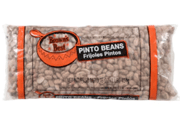Eight bedtime drinks that may help you sleep better
By
Veronica E.
- Replies 0
Disclaimer: The information provided in this article is for educational purposes only and is not intended as a substitute for professional medical advice, diagnosis, or treatment. Always consult your physician or other qualified healthcare providers with any questions you may have regarding a medical condition or before making any changes to your health regimen.
A good night’s rest can feel like one of life’s greatest luxuries—especially as we get older.
Yet for millions of Americans, peaceful sleep remains hard to come by, no matter how tired the body feels.
Studies from the National Institutes of Health estimate that between 50 and 70 million Americans live with ongoing sleep difficulties.
While the temptation to reach for a “nightcap” is common, experts agree alcohol often disrupts rest more than it helps.
The good news is that there are other drinks—simple, soothing, and backed by science—that may gently guide you into deeper, more restorative slumber.
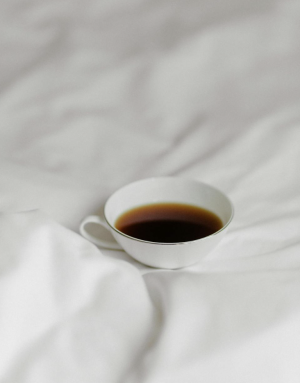
Rich in magnesium, melatonin, and tryptophan, tart cherry juice has been linked to longer and more efficient sleep.
A 2018 clinical trial found that people who drank it before bed enjoyed more restful nights.
Its naturally occurring melatonin can help reset the body’s internal clock, making it a flavorful and functional choice.
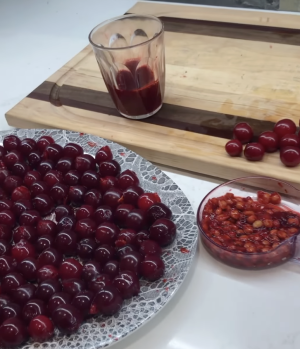
A time-tested classic, chamomile tea is known for calming the nervous system and easing a restless mind.
Its gentle anti-inflammatory properties also support overall well-being.
However, those with ragweed allergies may want to avoid it, since the plants are closely related.
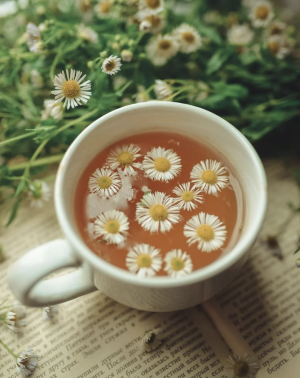
This traditional remedy still holds up. Milk provides tryptophan, magnesium, and vitamins A, B12, and D, all tied to healthy sleep.
The warmth itself helps signal relaxation.
For those who can’t tolerate dairy, there are plenty of plant-based alternatives.
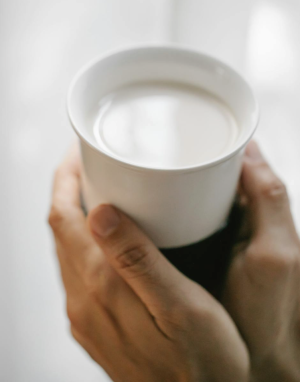
Popularized on social media, this mix combines tart cherry juice, powdered magnesium, and lemon-lime prebiotic soda or sparkling water.
Some versions add lemon juice for extra vitamin C.
The pairing of magnesium and melatonin gives this trendy drink a scientific foundation beyond its social media fame.
With a naturally sweet, mild flavor, lemon balm tea is both pleasant and effective.
A 2011 study showed it reduced insomnia symptoms by more than 40%.
It’s a gentle, herbal option that can become part of an evening ritual.
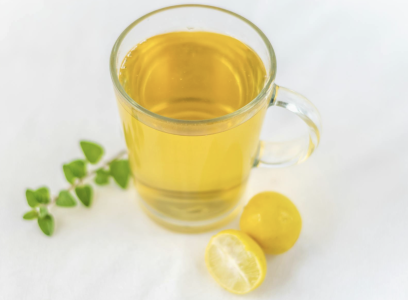
Bananas bring tryptophan, melatonin, magnesium, and vitamins, while kiwis add serotonin and fiber.
Together, they create a creamy smoothie that satisfies while promoting rest.
Research has found kiwi consumption linked to improved sleep, particularly in active adults.
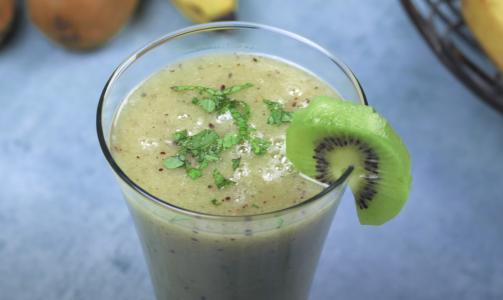
Made with turmeric and milk (often almond), golden lattes are warming and comforting.
Turmeric’s curcumin offers anti-inflammatory benefits, while almond milk contains melatonin, magnesium, and tryptophan.
A 2019 study found almonds may reduce insomnia symptoms, making this drink as functional as it is cozy.
Regular green tea may keep you awake, but decaf versions retain L-theanine—an amino acid that promotes relaxation.
The tea also delivers antioxidants like catechins and EGCG, supporting overall health alongside sleep.
A cup an hour before bed can be a gentle way to wind down.
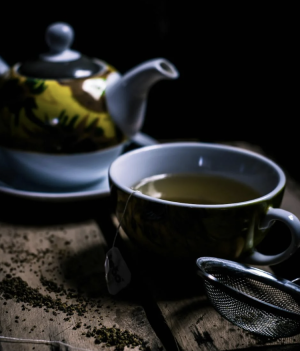
Each of these beverages offers nutrients that play a role in sleep quality:
Some choices can undermine your efforts to rest:
Here’s to sweeter dreams and more energized mornings—with just the right sip to help you drift off!
Read next:

Have you tried one of these bedtime drinks—or do you have a favorite of your own? Share your experiences, recipes, or sleep tips in the comments below. Your ideas could help a fellow reader finally enjoy the rest they’ve been missing.
A good night’s rest can feel like one of life’s greatest luxuries—especially as we get older.
Yet for millions of Americans, peaceful sleep remains hard to come by, no matter how tired the body feels.
Studies from the National Institutes of Health estimate that between 50 and 70 million Americans live with ongoing sleep difficulties.
While the temptation to reach for a “nightcap” is common, experts agree alcohol often disrupts rest more than it helps.
The good news is that there are other drinks—simple, soothing, and backed by science—that may gently guide you into deeper, more restorative slumber.

A warm, calming drink before bed can be a simple step toward better sleep. Image Source: Pexels / Nataliya Vaitkevich.
1. Tart cherry juice
Rich in magnesium, melatonin, and tryptophan, tart cherry juice has been linked to longer and more efficient sleep.
A 2018 clinical trial found that people who drank it before bed enjoyed more restful nights.
Its naturally occurring melatonin can help reset the body’s internal clock, making it a flavorful and functional choice.

Tart cherry juice provides natural melatonin and magnesium that may improve sleep quality. Image Source: YouTube / @LutherMarshOrganics,
2. Chamomile tea
A time-tested classic, chamomile tea is known for calming the nervous system and easing a restless mind.
Its gentle anti-inflammatory properties also support overall well-being.
However, those with ragweed allergies may want to avoid it, since the plants are closely related.

Chamomile tea has long been used to calm the mind and prepare the body for rest. Image Source: Pexels / Аня Кринцер.
3. Warm milk
This traditional remedy still holds up. Milk provides tryptophan, magnesium, and vitamins A, B12, and D, all tied to healthy sleep.
The warmth itself helps signal relaxation.
For those who can’t tolerate dairy, there are plenty of plant-based alternatives.

A classic bedtime choice, warm milk contains tryptophan and nutrients that support healthy sleep. Image Source: Pexels / Charlotte May.
4. The “sleepy girl” mocktail
Popularized on social media, this mix combines tart cherry juice, powdered magnesium, and lemon-lime prebiotic soda or sparkling water.
Some versions add lemon juice for extra vitamin C.
The pairing of magnesium and melatonin gives this trendy drink a scientific foundation beyond its social media fame.
5. Lemon balm tea
With a naturally sweet, mild flavor, lemon balm tea is both pleasant and effective.
A 2011 study showed it reduced insomnia symptoms by more than 40%.
It’s a gentle, herbal option that can become part of an evening ritual.

Lemon balm tea offers a mild, naturally sweet flavor and may help reduce insomnia symptoms. Image Source: Pexels / Visions of Asia.
6. Kiwi banana smoothie
Bananas bring tryptophan, melatonin, magnesium, and vitamins, while kiwis add serotonin and fiber.
Together, they create a creamy smoothie that satisfies while promoting rest.
Research has found kiwi consumption linked to improved sleep, particularly in active adults.

A kiwi banana smoothie blends nutrients like serotonin, melatonin, and magnesium for a sleep-friendly boost. Image Source: YouTube / Tasted Recipes.
7. Golden latte with almond milk
Made with turmeric and milk (often almond), golden lattes are warming and comforting.
Turmeric’s curcumin offers anti-inflammatory benefits, while almond milk contains melatonin, magnesium, and tryptophan.
A 2019 study found almonds may reduce insomnia symptoms, making this drink as functional as it is cozy.
8. Decaffeinated green tea
Regular green tea may keep you awake, but decaf versions retain L-theanine—an amino acid that promotes relaxation.
The tea also delivers antioxidants like catechins and EGCG, supporting overall health alongside sleep.
A cup an hour before bed can be a gentle way to wind down.

Decaffeinated green tea provides L-theanine and antioxidants that can encourage relaxation before bed. Image Source: Pexels / Wallace Chuck.
Why these drinks work
Each of these beverages offers nutrients that play a role in sleep quality:
- Fiber supports gut health, which is closely connected to the brain and sleep cycles.
- Magnesium calms the nervous system and eases stress.
- Tryptophan converts into serotonin, which regulates sleep-wake rhythms.
- Melatonin signals to the body that it’s time to sleep.
- Vitamins reduce inflammation, support neurotransmitters, and may ease conditions like restless leg syndrome.
Drinks to avoid before bed
Some choices can undermine your efforts to rest:
- Caffeine: Coffee, black tea, chocolate, and sodas may linger in the system for hours.
- Alcohol: Though it may help at first, it disrupts deeper stages of sleep.
- Sugary drinks: Can spike blood sugar and lead to restlessness.
- Carbonated drinks: May cause bloating or discomfort at bedtime.
Tips for better sleep
- Make a calming drink part of your bedtime ritual.
- Keep your room cool, quiet, and dark.
- Limit screen time before bed to avoid blue light exposure.
- Stick to a consistent schedule, even on weekends.
Here’s to sweeter dreams and more energized mornings—with just the right sip to help you drift off!
Read next:
- Dinner vegetables that may naturally improve your sleep
- Tired of restless nights? Try these 4 natural, caveman-inspired sleep tips
- Are you eating dinner at the wrong time? The best hour for better sleep (plus 2 snacks that help)
Key Takeaways
- Beverages like tart cherry juice, chamomile tea, warm milk, lemon balm tea, golden latte with almond milk, decaf green tea, and kiwi banana smoothies contain nutrients that support better sleep.
- Key sleep-friendly nutrients include magnesium, tryptophan, melatonin, fiber, and essential vitamins that help regulate rest and relaxation.
- Drinks to avoid before bedtime include caffeine, alcohol, sugary beverages, and carbonated drinks that may interfere with sleep.
- Adding calming drinks to a nightly routine, alongside healthy habits like consistent sleep schedules and reduced screen time, may improve sleep quality.
Have you tried one of these bedtime drinks—or do you have a favorite of your own? Share your experiences, recipes, or sleep tips in the comments below. Your ideas could help a fellow reader finally enjoy the rest they’ve been missing.


